Neonatology Hemodynamics Fellowship
About the Program
You will benefit from Iowa’s tradition of collaboration.
The University of Iowa is well suited to be part of this unique approach to managing the heart and circulatory system of the tiniest babies.
We are leaders in neonatology care, known worldwide for documenting our protocols and sharing them with the world.
Our culture of academic medicine is one of collaboration, where it’s natural for specialists in cardiology to work closely with neonatologists to better understand complex physiology and develop appropriate care based on groundbreaking diagnostic tools.
In partnership with the pediatric echo lab, trainees will be exposed not only to neonatal echocardiography but will also get an opportunity to observe cardiac MRI and fetal echocardiography as part of their training.
You will be among the nation’s first fellowship-trained specialists.
Iowa accepts one or two fellows each year for this first-of-its-kind program. Our first fellow entered the program in the summer of 2019.
If accepted, you would be among only a handful of practicing neonatologist in the United States with fellowship-based training in this groundbreaking approach to the hemodynamic management of premature infants.
You will work in unrivaled facilities designed for specialty care.
We provide care in the University of Iowa Stead Family Children’s Hospital. Our intensive care facilities were designed by our care teams and came on line in the past few years. They offer the most sophisticated technology and incorporate best practices for patient care. In our center, echocardiography may be used in combination with near infrared spectroscopy and non-invasive cardiac output monitoring to develop a comprehensive understadning of neonatal physiology in real time.
University of Iowa Hospitals & Clinics is a designated Magnet hospital, and has been so longer than most in the country. Our nurses and support teams work at the highest levels of responsibility, adding to the quality of care we are able to deliver for our patients and their families.
You will use state-of-the-art simulators and imaging modalities.
Iowa is one of the few places in the country to make full use of the EchoCOM echocardiology simulator. The device allows for 3D reconstructions and can provide simulations of conditions with anatomically normal and abnormal heart structures.
The Iowa echocardiography team uses state-of-the-art imaging that allows for precise assessments of individual patients as well as instant access to database images for background and comparison.
The Year in Detail
The University of Iowa (UI) program is fully funded one-year fellowship training based on the 2011 American Society of Echocardiography guidelines/standards.
Aside from one month of NICU fellow service designed to familiarize non-UI trainees with the operations, population, and protocols unique to the UI program, the year is protected for Neonatal Hemodynamics training. NICU service may be completed concurrently with phase I.
The duration of each phase will vary by trainee based on acquisition of competencies and individual progress. Longitudinal exposure to primarily hemodynamics cases and primarily cardiology teaching/cases is encouraged and will be facilitated collaboratively independent of training phase.
Phase I – Image Acquisition
Ultrasound physics tutorial utilizing online resources with a log-book of modules and a quiz will be completed concurrently with familiarization with normal and abnormal anatomy using a dedicated echocardiography simulator (EchoCOM, Leipzig Germany) and the TnECHO website/app. After successful demonstration of these skills, hands-on training will be undertaken in the Pediatric Echocardiography lab under the co-supervision of Neonatal and Cardiology departments.
Phase II – Neonatal Hemodynamics Integration
Hands-on training in the NICU with graduated supervision of Hemodynamics consults including imaging, measurement, interpretation and therapeutic decision making with regular case reviews. Training at UI will provide a wide range of clinical exposure including asphyxia, ECMO referrals, congenital diaphragmatic hernia, and a high volume of periviable neonates (e.g. 22+0– 23+6 weeks). Training in limited head ultrasound screening and point of care ultrasound will be provided.
Longitudinal Academic Progress
Academic supervision on a minimum of one research project suitable for presentation at a scientific meeting and publication as a first author in a peer reviewed journal. An academic oversight committee will be formed for each trainee.
On call
Limited on call commitments will continue throughout the year in order to maintain competency in intensive care skills and procedures [1-2/month]. Pay, duty hour restrictions, and vacation policy will be standardized in accordance with University of Iowa policy.
Evaluation
Comprehensive evaluation will be performed on the basis of the achievement of competencies. Throughout training, fellows are expected to keep a log book of scans completed including the indication, their role in the consultation (clinical data collection, image acquisition and which plane(s), duration, reporting). Learners will be expected to complete a practical test of image acquisition covering recognition of red flags for common cardiovascular problems and congenital heart diseases utilizing simulator cases to complete phase I. Thereafter imaging skills will be evaluated using objective scoring tools using Direct Observation of Practical Skills (DOPS) assessments throughout the training. By the end of training, fellows should be able to adequately capture 90-110 images in ≤30 minutes. Fellows will provide assessment, impression and plan for every scan and will be critiqued on their problem formulation, interpretation and physiological knowledge. The intent is to document progress in sophistication of analysis and concordance with expert opinion. Upon completion of training, the candidate is expected to function as a competent and independent specialist in neonatal hemodynamics. A successful candidate must acquire a working knowledge of the theoretical and practical aspects of the discipline including its foundations in science and research.
How to Apply
Please stay tuned for next year’s application to open in early 2025!
2025 Application Requirements:
1. Fellowship application
2. Current curriculum vitae (CV)
3. Personal statement describing the candidate’s suitability for training and their goals with an emphasis on how they plan to implement hemodynamics training as a part of their clinical and academic career plan
4. Letter of support from fellowship program director, division director, or supervisor
5. Letter of recommendation from either a neonatal or cardiology mentor
6. Current photo
Paperwork that will help with filling out the application:
1. Medical licensure information
2. USMLE and/or COMLEX testing information (needed prior to July 1 start)
3. Undergraduate and Medical (or other) Education details
4. Residency and Fellowship training details
Applications should be submitted no later than April 30th of the calendar year prior to the desired July start date [e.g., April 30, 2025 for a July 2026 start date] in order to allow adequate time for processing and licensure. Applications submitted via any other route will not be accepted.
A committee will review all applications after the April 30th deadline according to a standardized template.
A short list of candidates achieving a sufficient score will be offered an interview which may be conducted either in person or via zoom depending on the Candidate’s preference and current institutional policies. Both successful and non-successful candidates will be notified in writing by June 30th at the latest.
Observership Experience
Introduction
The Iowa Neonatal Hemodynamics Observership Experience is a 3-day educational program that was created to expose interested individuals to the field of neonatal hemodynamics and share the expertise and best practices developed at one of the premier hemodynamics training institutions in the world.
Attendees will have the opportunity to observe clinical hemodynamics consults in the NICU and will receive didactics daily from the Iowa hemodynamics staff and fellows (see objectives below). They will learn about hemodynamics program building, differentiating hemodynamics from cardiac POCUS, and participate in our daily internal TnEcho Review sessions lead by Dr. Patrick McNamara. They will also have the opportunity to participate in open Q&A sessions with hemodynamics faculty and fellows.
Observership Objectives
| 1 |
Learn how a comprehensive Neonatal Hemodynamics program is incorporated into a level 4 NICU |
| 2 |
Understand and delineate the scope of Hemodynamics vs cardiac POCUS assessments |
| 3 |
Directly observe clinical Neonatal Hemodynamics consults; including scanning, measurements, interpretation, and clinical advice. |
| 4 |
Directly observe and participate in the TnECHO daily review (cases with echo-based discussion) |
| 5 |
Become exposed to the complexity of neonatal cardiovascular physiology in various disease states and common Hemodynamics consultation requests including: b. Acute vs chronic pulmonary hypertension c. Hypotension and shock |
| 6 |
Participate in one of the team’s academic activities (e.g., Lab meeting, Combined Cardiology Neonatal Hemodynamics Rounds or International Zoom Review) |
Target Audience
All individuals interested in learning more about neonatal hemodynamics are welcome, however the teaching level is geared toward neonatology and cardiology fellows and faculty.
-
Faculty interested in building a hemodynamics program at their home institution may particularly find the observership experience useful.
-
Prospective applicants to the Neonatology Hemodynamics Fellowship are encouraged to attend.




Dates Offered
2025
Each observership experience includes 3 days (Tuesday-Thursday) which run from ~8:30am-5:00pm.
- February 11th-13th | Session full! Please contact megan-hudak@uiowa.edu to be added to the waitlist.
- May 13th-15th | Session full! Please contact megan-hudak@uiowa.edu to be added to the waitlist.
- August 26th-28th | Session full! Please contact megan-hudak@uiowa.edu to be added to the waitlist.
- December 2nd-4th | Session full! Please contact megan-hudak@uiowa.edu to be added to the waitlist.
2026
Each observership experience includes 3 days (Tuesday-Thursday) which run from ~8:30am-5:00pm.
- February 17th-19th
- May 12th-14th
How Do I Apply?
Application Requirements
Please email megan-hudak@uiowa.edu including the dates you would be available (listed above) for the Observership Experience. If you'd like more information but are not yet ready to apply please reach out and we will get you in touch with a member of the hemodynamics team to address further questions.
Dates are first-come, first-served and applications are reviewed on a rolling basis in order to help you select and reserve a slot that works for you.
Application requirements include:
-
CV
-
Observership Experience Application
-
Confidentiality Agreement
-
Observership Experience Fee
Frequently Asked Questions
Is there a fee for this experience?
| Program | Time Frame | Description | Faculty Fee | Allied Health Professionals | Trainee Fee |
| Observership Experience | 3 days | Observing only. No patient contact. |
$400 | $250 | $0 |
Payments are made via check or credit card. There is a 3% surcharge for credit card payments.
Refund Policy:
- Payments can be transferred between dates as space allows
- If a refund is approved, credit card surcharges incurred during the initial payment will not be included in the refund
Will I be able to perform echo’s and practice measuring during this experience?
You will directly observe the hemodynamics fellows perform clinical echos and observe their measurements (and receive a didactic lecture on hemodynamic echo measurements) but will not have any hands on experience in this program.
How many observers will participate in each experience?
We typically accept up to 6 observers per session. We have found a small group setting provides the best experience and learning opportunities for attendees.
How long should I plan to be at the hospital each day?
The daily schedule varies slightly, but generally plan to be at the hospital between 8-8:30am through 4-5pm. You will receive a detailed itinerary on the first day of your observership experience, which will begin at 8:30am with provided coffee and bagels.
Can I attend multiple observership experiences?
Yes, pending space availability.
I am not available for the dates lists, are there other opportunities available?
We have 4-5 experiences yearly, if you don’t see current dates that work for you please reach out to
megan-hudak@uiowa.edu and we can place you on a waiting list to hear from us once we have the next academic years’ dates scheduled.
Where should I stay & what are my transportation options?
Transportation and housing are at the cost of the observer
- There are a number of hotels near the University:
Courtyard Iowa City University Heights | Closest to University Campus
 Home2 Suites by Hilton | Offers UI business travel rate
Home2 Suites by Hilton | Offers UI business travel rate
 Homewood Suites Coralville IRL | Offers UI business travel rate
Homewood Suites Coralville IRL | Offers UI business travel rate
- There are free busses that run between the hospital and downtown Iowa City:
Iowa Cambus
Iowa City Transit | Fare Free Iowa City
- The Cedar Rapids Airport is about 22 miles (~28 minutes) from UI Health Care:
Car Rental
 Ground transportation resources
Ground transportation resources
- When an invitation is extended to you for an observership experience, you may opt in to be included on a group email to all observers for your date to share contact information. Some observers choose to share transportation costs to and from the Cedar Rapids airport, rent Air B&B’s together, and plan evening meals together.
Our People
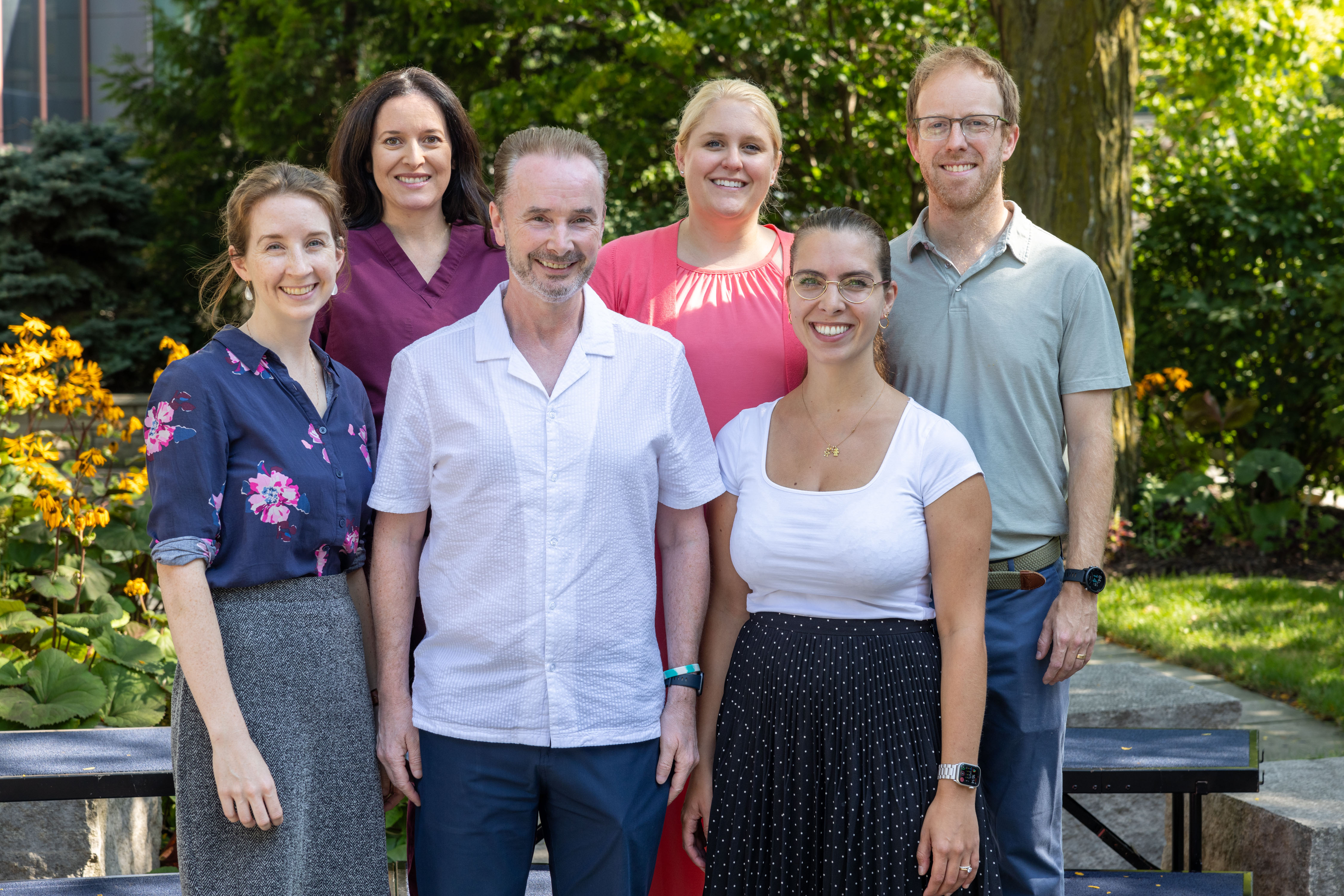
The Neonatal Hemodynamics Faculty and Fellows are the heart of our program. We welcome learners, trainees, and/or observers from across the nation and throughout the world with an open-door philosophy. During your experience at Iowa, you will be exposed to cutting edge methods of evaluating the cardiovascular health of critically ill infants from some of the best clinicians, researchers, and teachers in our profession.
The hemodynamics faculty are dedicated to helping you achieve your training aims. Inpatient service expectations are well-balanced with ample learning opportunities and enthusiastic teaching. These opportunities include, but are not limited to, one-on-one settings, interactive lectures, learning with an ECHO simulator, and daily TnECHO review sessions.
Our reviews are a case-based physiology discussion with an emphasis on comprehensiveness, the unique aspects of neonatal physiology and pharmacotherapeutics. We work in close collaboration with our pediatric cardiology colleagues to ensure a breadth of exposure to red flags for congenital heart disease and ensure pediatric echocardiography lab training with co-supervision by the director of the University of Iowa Pediatric Echo Lab.
Fellows will also be exposed to ongoing research opportunities in which they will learn research methodology and participate in data acquisition and analysis. We provide personalized opportunities for you to learn career-long lessons from these dedicated professionals.
Neonatal Hemodynamics Faculty
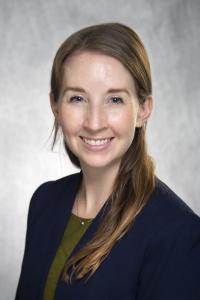
Rachael Hyland, MD
Clinical Assistant Professor
MD, University of Iowa Carver College of Medicine
BA, Washington University, St. Louis, Missouri
Dr. Hyland attended medical school at the University of Iowa Carver College of Medicine and completed her residency in Pediatrics and fellowship in Neonatal-Perinatal Medicine at Washington University in St. Louis. She then returned to Iowa to start her Neonatal Hemodynamics Fellowship in July 2022. Her research interests include the hemodynamic consequences of intrauterine growth restriction, particularly within the extremely premature neonatal population, and the hemodynamics of extra corporeal life support (ECLS/ECMO).
_______________________________________________________________________________________________________________________________________________________________________________________
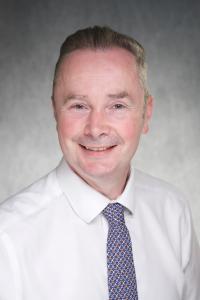
Patrick McNamara, MB, BCh
Neonatology Division Director; Professor
MB, BCh, BAO, Queens University Belfast, Belfast, Northern Ireland
MRCPCH, Royal College of Physicians and Surgeons of Edinburgh, Edinburgh, United Kingdom
MSc, University of London, London
Through McNamara’s leadership, Iowa’s division of neonatology has become an internationally recognized leader in Neonatal Hemodynamics. In addition to his role as Founder and Chair of the Pan-American Hemodynamics Collaborative, he is the Chair of the Pediatric Academic Society Neonatal Hemodynamics Club and codirector of the Neonatal Hemodynamics Research Center. His clinical and research interests include myocardial performance in the setting of a hemodynamically significant ductus arteriosus, pulmonary hypertension and Targeted Neonatal Echocardiography.
________________________________________________________________________________________________________________________________________________________________________________________
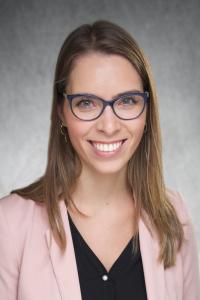
Adrianne Rahde Bischoff, MD
Clinical Assistant Professor
MD, Universidade Federal to Rio Grande do Sul, Porto Alegre, Brazil
Adrianne graduated from medical school at the Federal University of Rio Grande do Sul in her hometown in South Brazil and completed a Pediatrics Residency at the Hospital de Clinicas de Porto Alegre. She pursued her Neonatal-Perinatal training at the University of Toronto and the Hospital for Sick Children where she grew a special interest in the field of Neonatal Hemodynamics and Targeted Neonatal Echocardiography. Adrianne was the first graduate of the Neonatal Hemodynamics Fellowship Program at the University of Iowa. Her research interests include cardiovascular physiology, patent ductus arteriosus definitive closure, and the use of cardiac MRI.
_________________________________________________________________________________________________________________________________________________________________________________________
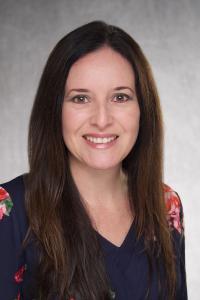
Danielle R. Rios, MD, MS
Clinical Professor
MD, University of Arizona, College of Medicine, Tucson, Arizona
MS, Clinical Investigation, Baylor College of Medicine, Houston
BS, Child Development, Arizona State University, Tempe, Arizona
Danielle Rios is a Clinical Professor of Pediatrics in the Division of Neonatology at the University of Iowa. She completed residency and neonatology fellowship at Baylor College of Medicine and Texas Children's Hospital where she also completed a Clinical Pharmacology Fellowship. Additionally, she completed a fellowship in Targeted Neonatal Echocardiography at the University of Toronto and Hospital for Sick Children. Her areas of academic focus are the improvement of outcomes in extremely low birth weight infants through predictive analytics and the hemodynamics of neonates born prematurely.
_______________________________________________________________________________________________________________________________________________________________________________________
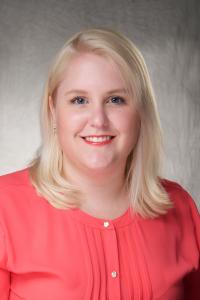
Amy Stanford, MD
Clinical Assistant Professor
MD, University of Iowa, Roy J. and Lucille A. Carver College of Medicine, Iowa City, Iowa
BS, Biology, Iowa State University, Ames, Iowa
Amy Stanford is an Assistant Clinical Professor of Pediatrics in the Division of Neonatology at the University of Iowa. She completed residency, neonatology fellowship, and neonatal hemodynamic fellowship at University of Iowa. She is establishing our multidisciplinary outpatient Hemodynamic Follow Up Clinic. Her areas of academic focus are chronic pulmonary hypertension and long-term cardiovascular outcomes of prematurity.
_____________________________________________________________________________________________________________________________________________________________________________________

John (Jack) Wren, Jr., MD, PhD
Clinical Assistant Professor
MD, PhD, Wake Forest School of Medicine
BA, Washington University, St. Louis, Missouri
Dr. Wren received his MD, PhD from Wake Forest School of Medicine and completed his residency in Pediatrics at St. Louis Children's Hospital. He went on to Washington University in St. Louis where he completed the Neonatal-Perinatal Medicine Fellowship. He came to the University of Iowa in 2023 for his Neonatal Hemodynamics Fellowship and joined as faculty in July 2024. His research interests include investigating the the role of inflammatory mediators in the pathogenesis of a hemodynamically significant PDA as well as the implementation of hemodynamics-directed care for infants with CDH.
________________________________________________________________________________________________________________________________________________________________________________________
Remembering Dr. Regan Giesinger
Regan Giesinger, MD, passed away from cancer in May of 2023 at the age of 42. In the five years she was working in the Neonatal Intensive Care Unit (NICU), she built a world leading neonatal hemodynamics program which has led to further improvements in survival of extremely preterm babies and a reduction in major morbidities. Regan was an exceptional young clinician scientist, who at a very early stage of her career, achieved an international reputation for her groundbreaking work in the application of targeted neonatal echocardiography to enhance clinical care through providing enhanced diagnostic and mechanistic insights. Regan’s dedication to patients and their families was second to none. She was selfless and always willing to help her colleagues.
Regan was an Associate Professor of Pediatrics in the Division of Neonatology at the Carver College of Medicine, University of Iowa and Director of the world-leading neonatal hemodynamics program.
She published many original studies that focused on the complex hemodynamic physiology and response of novel therapy of critically ill newborns. Her primary research work, which characterized the relationship between right ventricular dysfunction and neurodevelopmental outcomes in term neonates with hypoxic ischemic encephalopathy, was precedent-setting and has laid the foundation for further investigation. Despite her young age, she published over 80 original contributions related to novel therapies in pulmonary hypertension and the use of nitric oxide in preterm infants.
In addition, Regan showed outstanding strengths, integrity, and leadership in education, training, and administrative roles, and represented the very best of academic medicine. She was a member of the Neonatal Hemodynamics Advisory at PAS and was one of the founding members of the Neonatal Hemodynamics and TNE specialty interest group (SIG) at the American Society of Echocardiography.
In 2021, Regan was appointed as Fellow of the American Society of Echocardiography (FASE), only the second neonatologist to receive this accolade. She was also a member of the writing group to update the guidelines for TNE and cardiac POCUS.
Regan has left behind a powerful legacy. In teaching the importance of physiology and diagnostic precision in cardiovascular care, she has influenced a generation of trainees and young faculty.
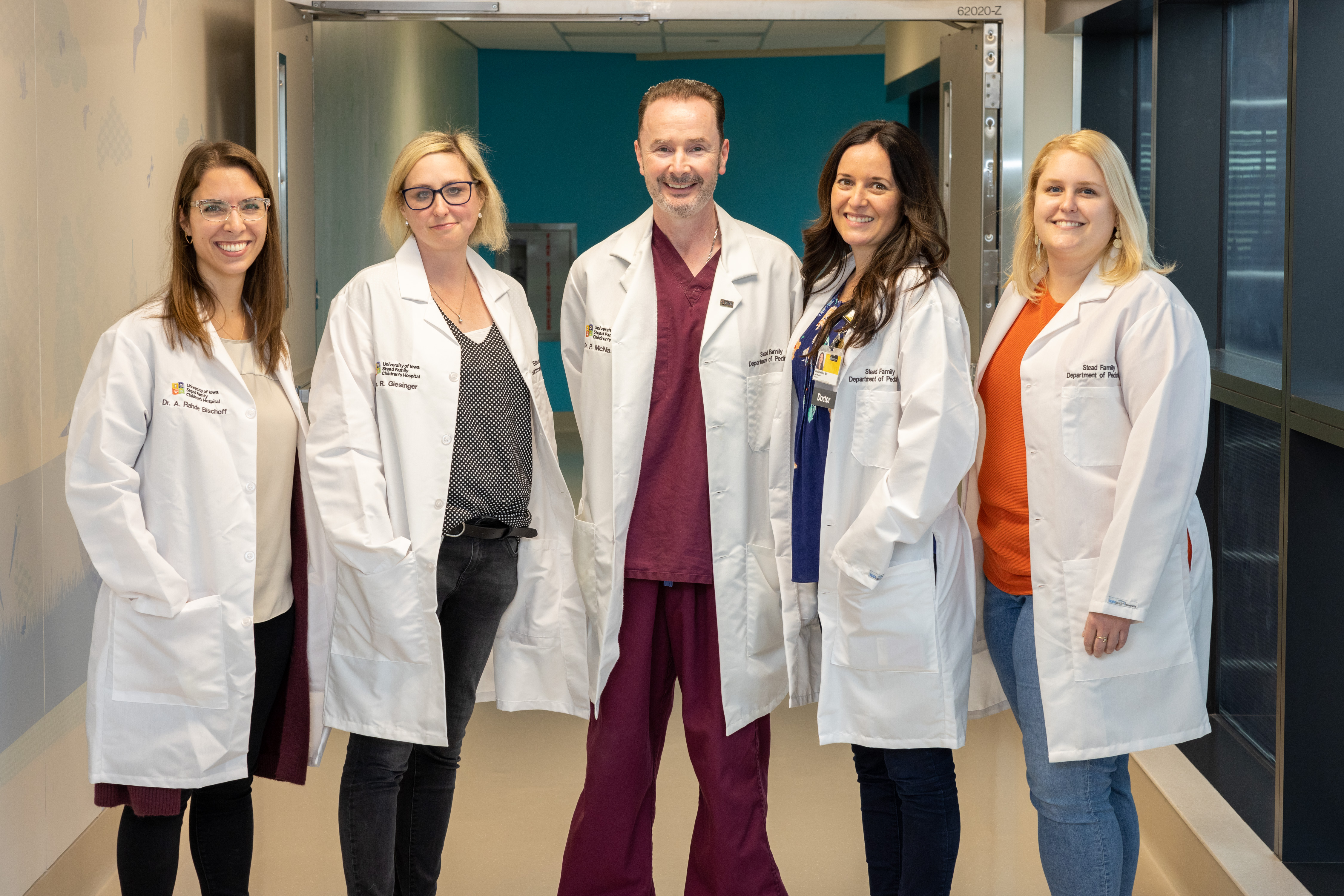
Hemodynamics Program Fellows
Numra Aleem, MBBS
Dr. Numra A. Aleem grew up in Pakistan and graduated with M.B.,B.S degree from the Aga Khan University, Karachi. She completed pediatrics residency at the University of Texas Medical Branch, Galveston and went on to the University of Iowa where she completed the Neonatal-Perinatal Medicine Fellowship. Her research during fellowship has focused on developing a neonatal point-of-care ultrasound (POCUS) program.
Tyler King, DO
Dr. King graduated from Marian University College of Osteopathic Medicine in Indianapolis, Indiana. He completed Pediatrics Residency at Indiana University School of Medicine and Neonatal-Perinatal Medicine Fellowship at Washington University School of Medicine in St. Louis, Missouri before coming to University of Iowa to begin his Neonatal Hemodynamics Fellowship in July 2024. His clinical interests include pulmonary hypertension management, PDA physiology and extreme prematurity.
Past Fellows
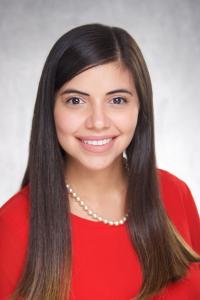
Stephania Cavallaro Moranta, MD
(2023-2024)
Current Institution: Children's Minnesota
John (Jack) Wren, Jr., MD, PhD
(2023-2024)
Current Institution: University of Iowa
Rachael Hyland, MD
(2022-2023)
Current Institution: University of Iowa
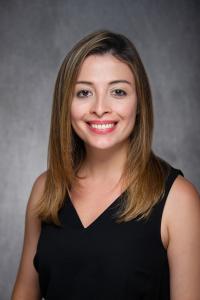
Angelica Vasquez, MD
(2021-2022)
Current Institution: Columbia University
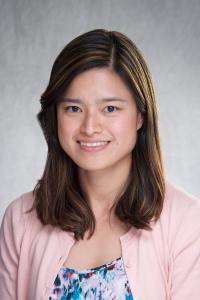
Trassanee (Pearl) Chatmethakul, MD
(2021-2022)
Current Institution: University of Oklahoma
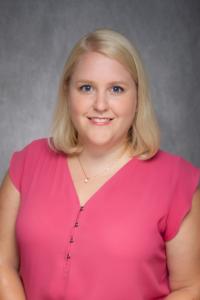
Amy Stanford, MD
(2020-2021)
Current Institution: University of Iowa
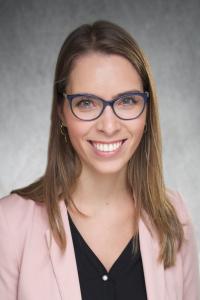
Adrianne Rahde Bischoff, MD
(2019-2020)
Current Institution: University of Iowa
Neonatal Trainees Engaged in Hemodynamics Research
Jenna Geick, MD
Dr. Jenna Geick attended medical school at the University of Iowa Carver College of Medicine. After completing her residency at the University of Michigan, she returned to Iowa in 2024 to begin her neonatology fellowship. Dr. Geick’s project is a retrospective cohort review to develop normative data for cardiac structure and function utilizing targeted neonatal echocardiography in a relatively healthy extremely preterm population of infants less than 27 weeks of gestation. She will also investigate differences in these metrics on postnatal day 1 and postnatal day 7.
Dilara Mat, MD
Dr. Dilara Mat completed her medical degree at Istanbul University in Turkey, followed by a pediatric residency at Hacettepe University. Following residency she moved to Iowa to join the Iowa Neonatal Hemodynamics Team as a research fellow. Her primary research focuses on understanding the impact of patent ductus arteriosus (PDA) shunt burden on short- and long-term outcomes in extremely low birth weight (ELBW) infants who have undergone PDA catheter closure. Additionally, she is studying on targeted neonatal echocardiogram measurements of to explore how maternal depression and its treatment influence cardiac outcomes in offspring.

Melanie Morris, MD
Dr. Melanie Morris went to medical school at the University of Washington School of Medicine and completed her pediatric residency at the University of Iowa. The underlying physiology of pulmonary hypertension in patients with bronchopulmonary dysplasia (BPD) is complex and can include multiple etiologies such as pulmonary vascular disease, left heart failure, flow mediated disease, and pulmonary vein disease. Dr. Morris’ project is a retrospective cohort study to identify the underlying frequency of these abnormal cardiopulmonary profiles in infants born < 30 weeks gestational age with chronic pulmonary hypertension and BPD based on serial targeted neonatal echocardiography exams.
Ashley Schlapper-Sevcik, DO
After completing her residency at Iowa Methodist Blank Children’s Hospital, Dr. Schlapper-Sevick started her neonatology fellowship at the University of Iowa in 2023. She is currently studying right ventricular dysfunction in BPD patients with pulmonary hypertension or evidence of pulmonary vascular changes (BPD-RH phenotype) and BPD patients with systemic hypertension or evidence of systemic vascular changes (BPD-LH phenotype) compared to BPD without any hypertension or vascular changes compared to term controls. Hemodynamics echo results are primarily used to determine phenotypes and to determine the level of dysfunction present.